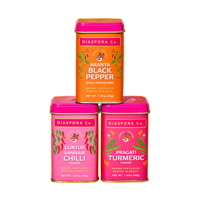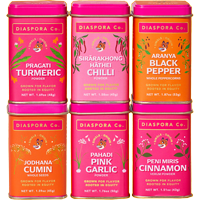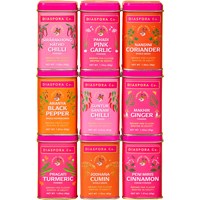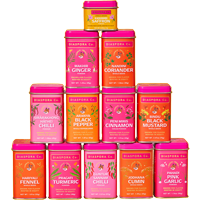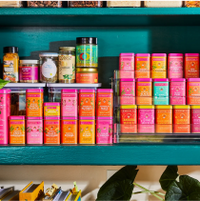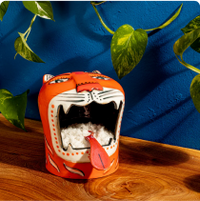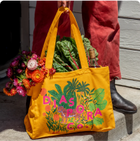If you haven’t already read the origin story for our Baraka cardamom, and the epic journey it took to onboarding it. You can read that here for some context.
Last October, I visited our partner farmer's Baraka estate with high hopes for the beginning of the harvest season. Sure, he'd been kinda dodging my calls, and had been reluctant to give me harvest estimates but nothing quite beats flying into Kochi, making the long, twisty drive up to Idukki district (or the Cardamom Hills!) and suddenly finding yourself in the lush, cardamom rainforest.
I didn't always feel this way. On my first visit to Idukki, I was deeply confused and put off. You drive through completely rural winding roads for about 4.5 hours and then you suddenly appear in what should be a sleepy mountain town except it's got flashing billboards, a surprising number of Lexus SUV's, more gambling parlors than seem reasonable, and way too many dodgy hotels. What I eventually learned is that the high price of cardamom has turned it into a political tool, as well as a corrupt money laundering operation. A majority of cardamom grown in Idukki is grown in terrible conditions, but the myth of the lush rainforest is part of what sells the goods, so it is spread far and wide by the folks driving around those Lexus SUV's.
As you might have guessed, Abraham is an outlier here. He does not drive an SUV, does not gamble, and certainly doesn't have any political clout. He's an earnest, elderly gentleman who has dedicated the past decade of his life to domesticating and naturally farming this beautiful wild cardamom. His estate is the very rainforest that others can only dream of. This has meant that he's spent the past decade keeping his head down, and staying largely out of the way in the district.
Here's the thing - when you buy a piece of land in the Idukki region, you are eligible for a license that allows you to sell your cardamom (whether you grow it or not) at the local auction houses. Kind of like growing champagne in Champagne, the system is meant to protect the geographical origin of green cardamom. So let's say you have a nice big pile of black money, maybe $100k? Procured from various bribes, illegal dealings and your life as a busy politician. You spend $50k on buying a rundown cardamom farm in Idukki that produces a modest harvest, if at all. Then you spend the the remaining $50k on buying cardamom from all your new neighbors, sometimes because they want to sell to you, sometimes because you're a scary dude and a bit of a bully. Then, you sell your own cardamom harvest, as well as your neighborhood round up to the local auction house - maybe at a big profit, maybe just breaking even. Suddenly, you have at least $50k in crisp, clean, white money and a certificate of sale stamped by the government. Cardamom is your money laundering washing machine dream that will continue to work for you as long as the sun shines and the cardamom grows!
Keeping that story in mind - last summer, an SUV-type bought the property adjacent to Abraham's. It had belonged to a distant cousin for decades, but they had moved to the city and their property suddenly sold quickly, in cash. The new tenants now had a close view of Abraham's thriving, lush operation and boy, they wanted it. So they made an offer, showed up at the estate for frequent "follow ups" and quickly grew angry at Abraham's unwillingness to sell. So in the height of summer, they cut Baraka Estate's water pipes repeatedly and slapped them with a lawsuit. These pipes were providing nourishment to the young cardamom plants in the intense heat of April and May, and whilst Abraham and his team rushed to fix the damage, the plants had already suffered tremendously.
What followed was a lengthy court battle and much anguish, that we wish we could have spared Abraham from, but such is the system. We were expecting a bumper harvest, and instead, we were left with 1/20th of that. Which is why this summer, we have sold out of cardamom within 90 seconds. I hope that those of you that did score some of this "microlot," will appreciate each pod for the symbol of resilience and hope that they are.
The next harvest will arrive in November 2020, and we're doing everything that we can to protect and help Baraka Estate grow and flourish despite these challenges. We are so grateful to all of you for the support.





